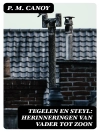In 'The History of Witchcraft in Europe, ’ readers discover a captivating exploration of magic, myth, and the supernatural as represented in European lore. Spanning a rich tapestry of historical periods and literary styles, this anthology delves into the nuanced portrayals of witchcraft, weaving together narrative accounts, historical analyses, and folklore. With highlights that transcend mere fictional representation to offer an insightful glimpse into societal fears and fascinations, the compilation serves as both a literary and cultural artifact reflecting Europe’s complex relationship with witchcraft myths. This collection assembles the works of renowned writers such as Bram Stoker and William Godwin, alongside scholars like Jules Michelet and Margaret Murray, whose collective endeavors capture the multifaceted nature of witchcraft’s role in cultural history. Each contributor brings a distinct perspective, whether drawn from the Gothic imagination, Romantic literary styling, or rigorous historical scholarship, knitting together a pastiche of voices that illuminate the broader mystical landscape within various European contexts. Their work engages with the historical and cultural currents that have shaped witchcraft’s enduring lore. For readers, this volume presents an unparalleled chance to navigate the intricate web of witchcraft narratives across time and geography. It invites a deep reflection on how these stories continue to inform contemporary understanding of fear, power, and magic. 'The History of Witchcraft in Europe’ not only serves as an educational resource but also as a dynamic dialogue between diverse authors, offering a myriad of insights into the fascinating underworld of European folklore and beyond.
O autorze
Bram Stoker, born Abraham Stoker on November 8, 1847, in Clontarf, Dublin, Ireland, is renowned primarily for his monumental contribution to Gothic horror literature, most famously through his 1897 novel 'Dracula’. This seminal piece not only carved out a timeless place for Stoker in the pantheon of horror writing but significantly influenced the depiction of vampires within the popular cultural zeitgeist. The depth of Stoker’s work, however, extends beyond this magnum opus, reflecting his varied literary talents and interests in works such as 'The History of Witchcraft in Europe’. Through this exploration of the superstitions and societal responses to witchcraft, Stoker reveals his scholarship and penchant for the macabre and the occult, which permeates much of his oeuvre. His literary style often wove together the suspenseful and the supernatural, a combination that came to typify his distinctive voice. Though he enjoyed a multifaceted career—as a theatre manager, critic, and writer—Stoker’s legacy is entrenched in his contributions to horror and the supernatural, with his writings bearing a lasting impact on both literary and popular culture. He passed away on April 20, 1912, in London, but his works continue to serve as a touchstone for horror aficionados and an inspiration to countless authors and filmmakers within the genre.












